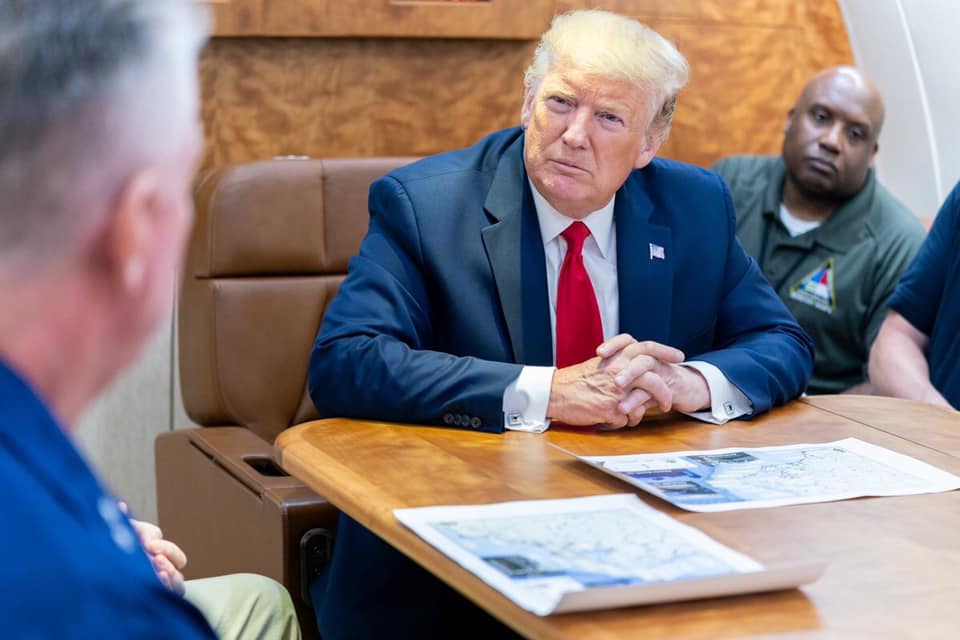News
Congress acts to limit Trump on military action in Iran

The House gave final legislative approval to the measure Wednesday, 227-186, sending it to Trump. The president has promised to veto the war powers resolution, warning that if his “hands were tied, Iran would have a field day.” (File photo: Donald J. Trump/Facebook)
WASHINGTON — Defying a veto threat, Congress has approved a bipartisan measure to limit President Donald Trump’s authority to launch military operations against Iran.
The House gave final legislative approval to the measure Wednesday, 227-186, sending it to Trump. The president has promised to veto the war powers resolution, warning that if his “hands were tied, Iran would have a field day.”
The resolution, sponsored by Sen. Tim Kaine, D-Va., declares that Trump must win approval from Congress before engaging in further military action against Iran. Kaine and other supporters say the measure is not about Trump or even the presidency, but instead is an important reassertion of congressional power to declare war.
Six Republicans joined 220 Democrats and independent Rep. Justin Amash of Michigan to support the measure. Six Democrats and 180 Republicans opposed it. In the Senate last month, eight Republicans backed the resolution.
The resolution “sends a clear message that the American people don’t want war with Iran and that Congress has not authorized war with Iran,” said Rep. Eliot Engel, D-N.Y., chairman of the House Foreign Affairs Committee.
While tensions with Iran have abated since a U.S. drone strike that killed Iran’s top general in early January, the resolution clarifying Congress’ power to declare war is still important, Engel said.
“Congress doesn’t have to wait until the president alone decides to use military force again,” Engel told House members during floor debate Wednesday. “It’s our responsibility to do something, because we know the tensions could flare up again at a moment’s notice. Iran has not been deterred as the administration promised.”
Texas Rep. Michael McCaul, the top Republican on the Foreign Affairs Committee, called the war powers measure “divisive and irresponsible” and based on a false premise.
“It orders the president to terminate hostilities against Iran. The problem is, for the other side, we are not engaged in hostilities in Iran,” McCaul said.
If the U.S. military launches strikes in Iran, “I believe that the president would need to come before this body to ask for a new authorization” for the use of force, McCaul said. “But that is not what we are facing.”
The House vote marked a rare exertion of authority from Congress, which also moved to impose restrictions on U.S. involvement with the Saudi-led war in Yemen last year after U.S.-based journalist Jamal Khashoggi was killed in a gruesome murder at Saudi Arabia’s consulate in Turkey. Trump promptly vetoed that measure.
The Democratic-controlled House passed a separate, nonbinding resolution on Iran in January, a few weeks before the Senate approved Kaine’s resolution. Two-thirds votes in the House and the GOP-run Senate would be needed to override an expected Trump veto.
Kaine hailed the House vote.
“For years, Congress has abdicated its responsibility on matters of war, but now a bipartisan majority in both the Senate and House has made clear that we shouldn’t be engaged in hostilities with Iran without a vote of Congress,” he said in a statement.
The legislation “doesn’t prevent the president from defending the United States against imminent attack,” but instead “demands that the decision of whether or not we go on offence and send our troops into harm’s way should only be made after serious deliberation and a vote of Congress,” Kaine added. “If President Trump is serious about his promise to stop endless wars, he will sign this resolution into law.”
In a statement of administration policy, the White House said the resolution should be rejected “because it attempts to hinder the president’s ability to protect” U.S. diplomats, forces, allies and partners, including Israel, from the continued threat posed by Iran and its proxies, including militia groups and foreign fighters in Syria.
“Iran has a long history of attacking United States and coalition forces both directly and through its proxies,” the White House said, adding the congressional resolution could hinder Trump’s ability to protect U.S. forces and interests in the region.
“This joint resolution is untimely and misguided. Its adoption by Congress could undermine the ability of the United States to protect American citizens whom Iran continues to seek to harm,” the White House said.
Tehran responded to the U.S. attack on its top general, Qassem Soleimani, by launching missiles at two military bases in Iraq that house American troops. The attack caused traumatic brain injuries in more than 100 U.S. soldiers, the Pentagon said.
Democrats and Republicans alike criticized a briefing by the Trump administration shortly after the drone strike, saying U.S. officials offered vague information about a possible attack being planned by Iran but no substantial details.
Kaine has long pushed for action reasserting congressional power over military conflict. At the request of Republican senators, he removed initial language that targeted Trump in favour of a generalized statement declaring Congress has sole power to declare war. The resolution also directs Trump to terminate use of military force against Iran or any part of its government without approval from Congress and commends Trump for killing Soleimani, who was long designated a terrorist by the U.S.
“No one lamented the loss of Mr. Soleimani. No one,” said House Majority Leader Steny Hoyer, D-Md. “That’s not what this bill is about.”
The resolution “is about our Constitution, the authority of th





















